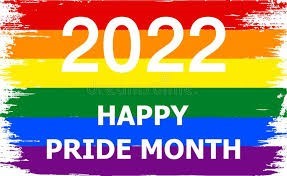The month of June is known for Pride events and celebrations around the world. They are meant to honor the 1969 Stonewall riots in New York City and help celebrate the lives of lesbian, gay, bisexual and transgender people.
In addition to celebrating LGBTQ people, Pride is also a time to educate yourself about their experiences. This can be done by reading books, watching shows, attending events, or talking to your coworkers.
Training Topics
During June, LGBTQ Pride Month Training celebrates the history and culture of lesbian, gay, bisexual, transgender, and queer people. It promotes self-affirmation, dignity, and equality rights for these people.
The celebration has a strong history, going back to the 1969 Stonewall Uprising in New York City. This historic event was a turning point for the modern LGBT rights movement.
In addition to promoting pride, Pride Month also serves as a reminder of the struggles and gains that the LGBT community has made. As a result, Pride Month is often associated with a number of annual calendar days that bring awareness to various issues and events in the lives of LGBTQ people.
For example, HIV Long-Term Survivors Day is dedicated to celebrating and honoring those who have overcome the ravages of HIV. Pulse Remembrance Day is an important day to remember the lives lost in the 2016 Pulse nightclub shooting. National HIV Testing Day is an opportunity to encourage people to get tested for HIV.
Preparing for Training
Pride Month is an important time to recognize the contributions of LGBTQ individuals to history. It also serves as a reminder to remember those who have been lost to hate crimes or HIV/AIDS.
For the next several weeks, GLAAD encourages media professionals to focus on the LGBT community’s achievements and setbacks while avoiding over-the-top or sensational depictions of Pride events. In fact, over-the-top images and footage can stifle participation by marginalizing people from the community who may not regularly attend or participate in Pride events.
HPC offers training in LGBTQ history and culture to any group that is interested in preparing for LGBTQ Pride Month or wants to learn more about the LGBTQ community. We can also offer technical assistance to groups and organizations that want to review their policies and procedures and environmental spaces to make them more welcoming for the LGBTQ community or those they serve.
Training Activities
June is Pride Month, a time to celebrate and support the LGBTQ community. It’s also a chance for kids to learn about the diversity and acceptance of all people.
One of the best training activities for this month is a lesson on the history of LGBTQ+ movements. This is especially important for educators and parents who want to teach their children about the struggles and achievements of the LGBTQ community.
Another great activity is to lead a book club about the topic. For this, choose a book that focuses on the challenges and issues facing the LGBTQ+ community.
The LGBTQ+ book club can be a fun way to educate employees on the community while encouraging them to read more. You can also use the discussion to encourage teams to support the community now and in the future.
Post-Training Discussions
Pride Month is a time to celebrate the LGBTQ+ community’s history and remember those who have died in hate crimes or other discrimination. It also provides an opportunity to learn about the contributions that members of the LGBTQ+ community have made to history and civil rights.
Post-training discussions can be valuable to share what you learned and to ensure that everyone involved in the training understands how they can support each other. Asking questions like “What do you think we should discuss?” or “Does your manager understand what you just learned?” are great ways to make sure everyone is on the same page after a training session.
Educating healthcare providers about LGBT topics is essential for ensuring that they have the knowledge and skills needed to treat lesbian, gay, bisexual or transgender people. However, in some developing countries, where attitudes toward the LGBT community are still skewed and anti-LGBT laws exist, it may be difficult to get health workers trained in this area.

